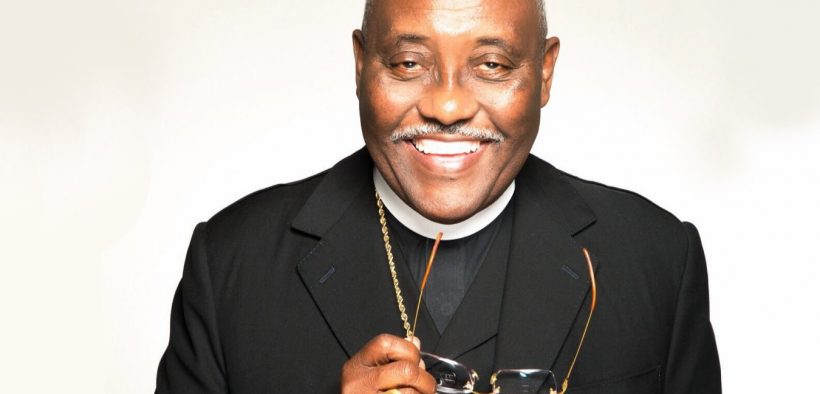‘High-Church Pentecostal’ Leader J. Delano Ellis Dies at 75

Bishop J. Delano Ellis II, a Black church official who started Pentecostal organizations and emphasized ecumenism, died over the weekend.
He was 75 and died after a recent hospitalization.
“While you share your love, concern and prayers with us, God and Bishop Ellis had another plan,” the Rev. Sabrina J. Ellis, who co-pastored Pentecostal Church of Christ in Cleveland with her husband, said in a Facebook post on Saturday (Sept. 19). “My husband made his transition this morning. Please continue to pray for us in this season.”
Over the course of his career, the Philadelphia native was a teacher, pastor, and a chief of chaplains in the U.S. Air Force Civil Air Patrol.
But J. Delano Ellis was also among a group of “High-Church Pentecostal” clerics who in the 1990s became known for adorning their necks with Roman collars, wearing priestly garments with links to their African heritage, and reciting the Nicene Creed. They were part of a trend that reshaped a portion of American Black religion.
“Traditionally…the Pentecostal church maintained its ardor but was never really known for its order,” the bishop, then president of the United Pentecostal Churches of Christ, told Religion News Service in 1995. “What we’re discovering…is that order is not blasphemous. Order best represents God.”
At that time, Ellis’ denomination had joined with two other groups, Pilgrim Assemblies International and Full Gospel Baptist Fellowship, for the first Joint College of African-American Pentecostal Bishops. They supported women ministers, which was a departure from some traditions. At their conference’s closing ceremony, Ellis and other bishops wore fuchsia zucchettos, or skullcaps, and episcopal rings, religious wear reminiscent of Roman Catholic bishops.
Ellis’ ecumenical work included several visits to the Vatican during St. John Paul II’s papacy, including one in 2000 where he led 160 delegates on a pilgrimage in hopes of building closer ties with the Catholic Church.
He retired in 2014 from the role of national chief of chaplains for the Civil Air Patrol, according to a bio on his ministry’s website.
Ellis was recalled as a key leader by members of the Church of God in Christ, a denomination he served for more than 35 years, and other faith leaders.
“Bishop Ellis was the consummate churchman. He was a wise counselor, dedicated servant, and a wealth of information that was helpful to generations of preachers, pastors and bishops,” said Bishop Talbert W. Swan II, leader of COGIC’s Nova Scotia jurisdiction. “He was a mentor, a friend, and a church father. He will be sorely missed.”
African Methodist Episcopal Bishop Vashti McKenzie, a Texas-based leader, responded to Sabrina Ellis’ announcement of her husband’s death.
“Time will not dull his legacy,” McKenzie commented on Facebook, “you and his sons and daughters in the faith will flesh out the rest.”
In 2004, Ellis had to step down from his leadership of the United Pentecostal Churches of Christ for health reasons.
But a couple of years later, he and more than a dozen other bishops started the Pentecostal Churches of Christ after he recovered from leukemia.
At the time, Ellis marveled at the convocation that came three years after he was preparing for his death.
“It was not a lack of faith in God’s ability to heal. It wasn’t that,” Ellis said. “It was more of a belief that maybe God was finished with me.”
About two weeks before his death, his last public appearance was in Cleveland, at a dedication ceremony naming a portion of an avenue in his honor. His family said he was hospitalized less than 24 hours later, a local Fox news station reported.
“I’ve got one thing to say,” he told the crowd at the Sept. 6 ceremony, “to God be the glory.”



